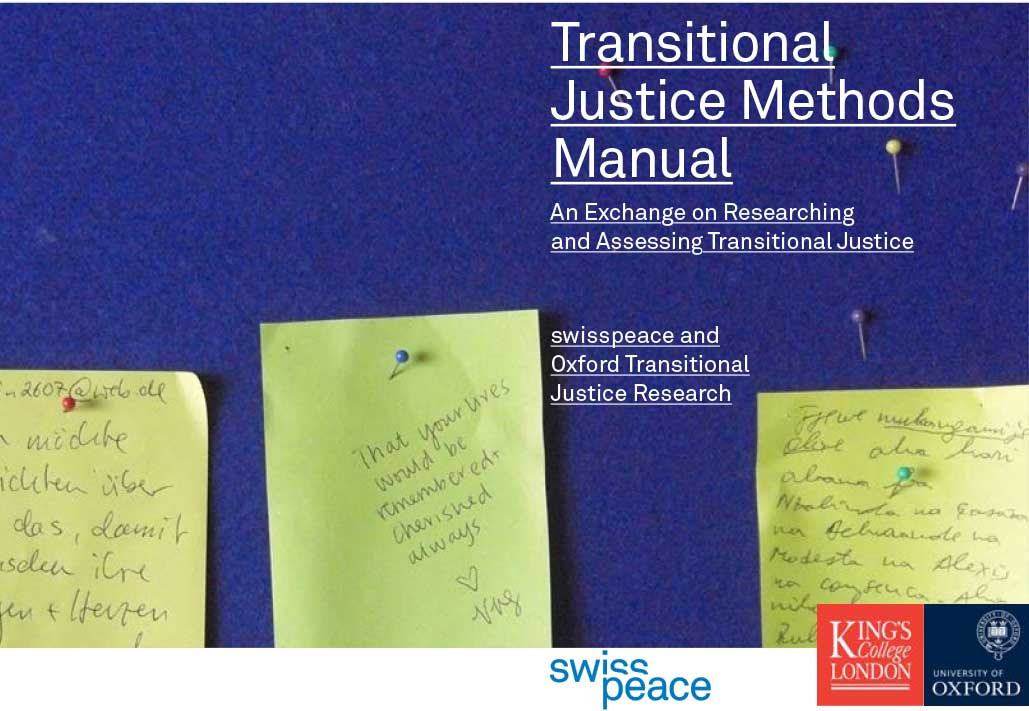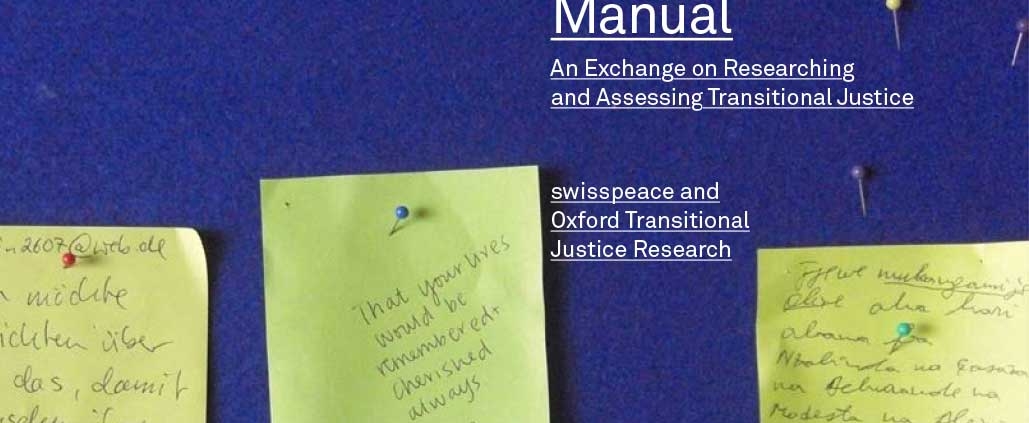Transitional Justice Methods Manual
An Exchange on Researching and Assessing Transitional Justice
In the past two decades, numerous approaches to transitional justice have been advocated and implemented. Truth commissions, criminal trials, reparations programmes and commemoration initiatives are now routinely established in response to serious human rights violations. This burgeoning practice has been accompanied by a wide range of research projects, informing the design, implementation and assessment of these justice initiatives. In many of these cases, human rights practice has driven the development of scholarship and certain advocacy agendas have profoundly shaped research.
These convergences have created dynamic crossovers among civil society actors, legal practitioners and academics, fostering a diverse and energetic transitional justice field. However, they have also caused often unstated tensions between pursuing research as a mechanism of human rights advocacy and pursuing it for academic ends. For example, empirical evidence may have been gathered to expressly support predetermined positions or scholars may begin their work by championing a particular transitional justice mechanism, such as the pursuit of criminal trials for serious human rights violations. To move beyond research that begins with predetermined policy prescriptions – but nevertheless to emphasise the importance of research that directly informs policy – this manual focuses on methods and methodologies. A discussion of the methods used in academic, advocacy and legal work allows us to recognize the divides between research and practice and provides one route for an exchange across them.

Owner/Developer : swisspeace
Language : English
J

